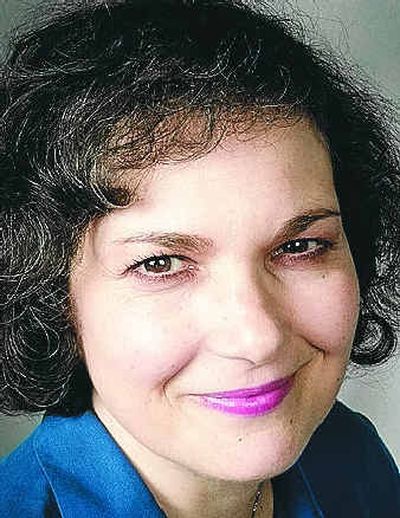Maybe we need to be yelled at

Several years ago, my friend Faith Spotted Eagle told me about “heyokas.” In her Dakota Indian culture, heyokas act as sacred clowns.
Faith explained: “Heyokas live a contrary life. In the cold of winter, they wear few clothes. If everyone dances clockwise, they dance counterclockwise. Through the way that they live and act, they force people to look at their serious actions and see the silly or absurd side. Shakespeare has his jesters. The white world has its stand-up comedians. Heyokas are similar to both, but more, much more.”
Faith has moved from Spokane to live again among her people in South Dakota. I miss her. I need to ask her this favor: Faith, please send a heyoka from South Dakota to the Inland Northwest. We need a heyoka to attend three meetings with the network of government and regulatory officials who are monitoring the health of the Spokane Valley/Rathdrum Prairie Aquifer.
A month ago, it was revealed that a refueling depot built in Hauser, Idaho, by the Burlington Northern & Santa Fe Railway Co. has been leaking toxic chemicals over the aquifer. This happened despite the fact the depot was touted – before it was built – as a state- of-the-art, never-will-leak-in-a-million- zillion-years project.
The heyoka would attend three aquifer meetings as a truth-teller. In the first meeting, the heyoka would stand on the table and holler in a mournful way for two straight minutes. This action would jolt these officials out of their polite and measured thinking and discussions. The scream would alert them to the urgency here.
People, this is the sole source of drinking water for almost half a million residents in Washington and Idaho! This is it. Pollute the aquifer with toxic substances, and it’s all over.
In the second meeting, the heyoka would take a seat at the table and then calmly pull two bottles of prescription pills out of a magic bag. The first bottle would contain thalidomide. In the early 1960s, it was given to pregnant women as a sedative. Their babies were then born with fins for limbs.
The second bottle would contain Baycol, a cholesterol-lowering drug pulled from the market in 2001 because of several deaths associated with it.
The heyoka would say: “Innocent people placed these toxic chemicals into their bloodstream, into their own vital fluid, because they believed officials who said they were safe. They were not safe. You allowed a depot to be built over the source of your drinking water – your community’s vital fluid – because you believed the officials who said it was safe. Whom will you believe now?”
In the third meeting, the heyoka would hand out a copy of “Collapse: How Societies Choose to Fail or Succeed,” a book by Jared Diamond, reviewed recently in The New Yorker. Diamond researched great societies that collapsed from within, mostly through the stupidity of the people living in those societies.
For instance, nearly 600 years ago the Norse who settled in Greenland starved to death because the harsh land could not support their cattle and crops. They didn’t need to starve, however. They could have eaten the area’s abundant fish. But they had a cultural taboo against eating fish and rather than violate it, they decided to die instead.
And in Easter Island, in the culture that created those famous giant stone statues, islanders died off after they chopped all their trees down. Diamond writes: “I have often asked myself, ‘What did the Easter Islander who cut down the last palm tree say while he was doing it?’ “
The heyoka would ask those around the meeting table, “Who among you wants to be the last person to sip the final cup of clean water from the aquifer? When are you going to stop treating the aquifer as an endless well of pure spring water rather than a fragile and vulnerable resource?”
Then the heyoka, wearing the lightest of clothes in the darkest of winters, would dance counterclockwise out of the room, shaking his head in bewilderment all the way back to South Dakota.